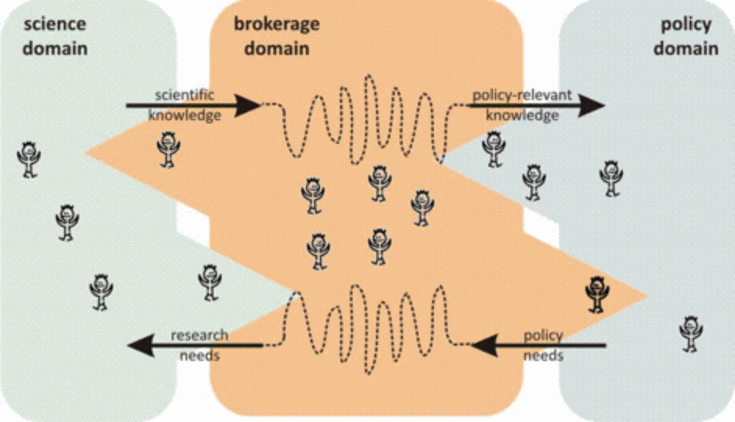
Science-policy interaction as knowledge brokerage
ReSciPI builds on a conceptual notion of the science-policy interface that clearly goes beyond a ‘linear model’ of mere knowledge transfer. In ReSciPI, a more iterative and dynamic understanding of the interaction between science and decision-making is adopted. This model can best be captured with the concept of ‘knowledge brokerage’ (KB). The KB model proceeds from the assumption that science and politics come together in a ‘brokerage domain’ in which they ‘negotiate’ the relevance and cogency of knowledge claims – while still keeping their particular identities and operating conditions as specific societal sub-systems. From a KB perspective, science-policy interactions are seen as dynamic exercises that evolve over time, occur sequentially and often iteratively, and typically involve long-term interactions between scientists, policy-makers, interest groups, the media and citizens. The KB model is not a homogeneous theory but it rather draws on different theories of political science and science & technology studies which provide more differentiated insights on the role of science in political and societal decision-making processes. In ReSciPI, the KB model is used to analyze concrete innovative models and forms of climate science-policy interactions in different industrialized countries. |
